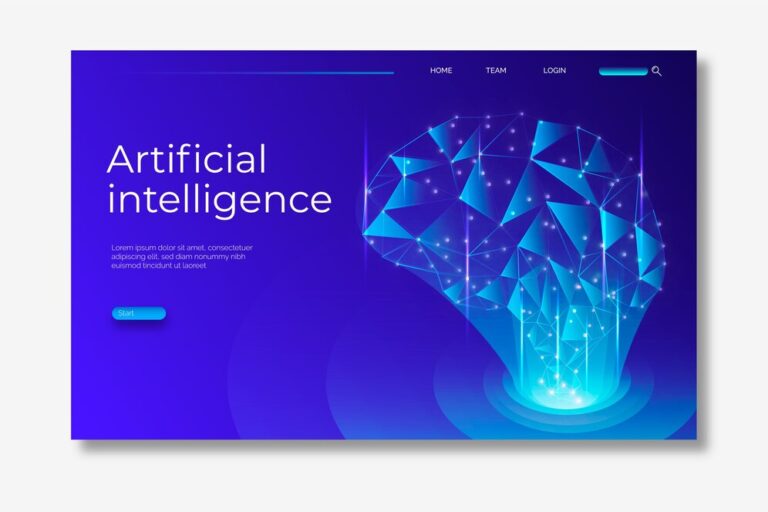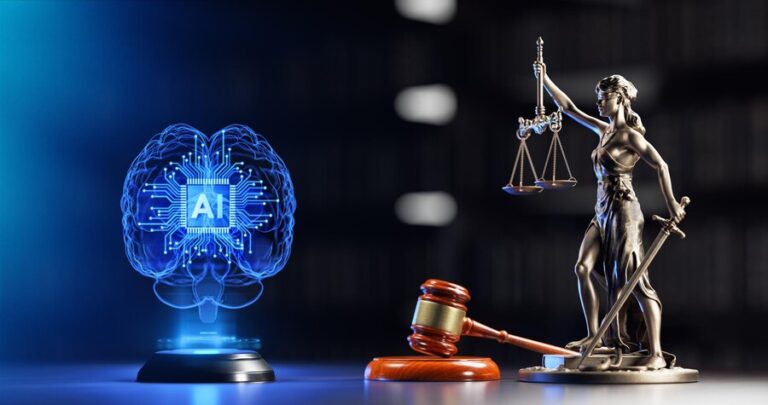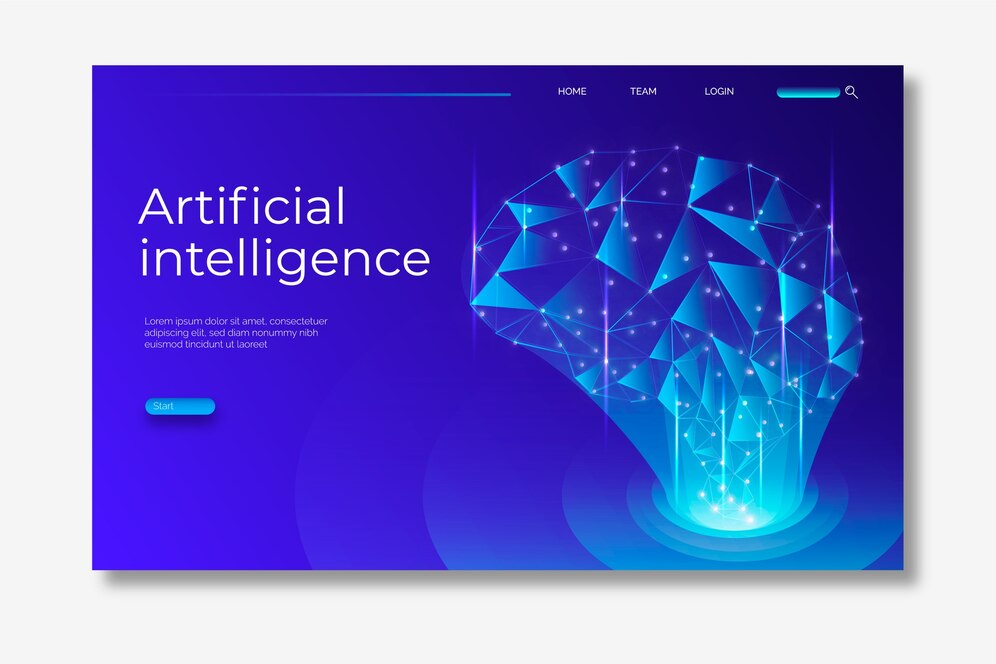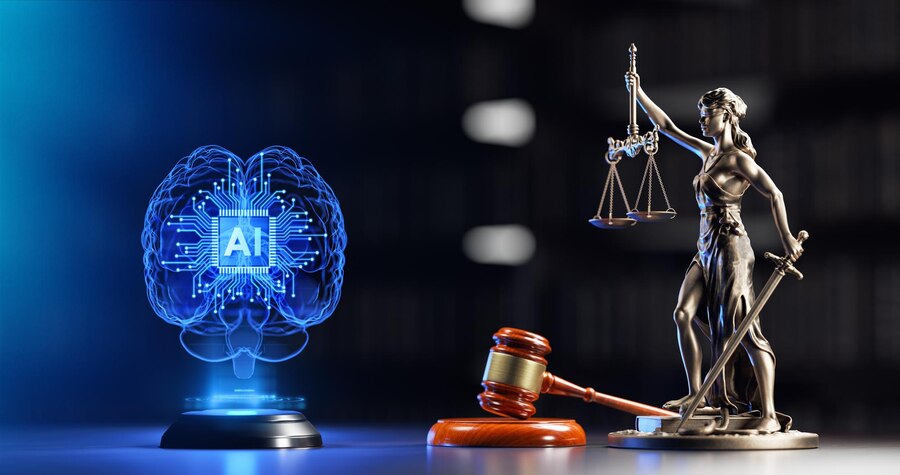The practice of data engineering in digital product development is undergoing a dramatic transformation, driven by the advent of Generative Artificial Intelligence (Gen AI). As a specialized branch of Artificial Intelligence (AI), Gen AI is designed to create systems that can generate new knowledge and insights, rather than merely processing existing information. The potential impact of Gen AI on data engineering is profound, promising to revolutionize the way we approach data collection, transformation, and organization for analysis.
This blog will delve into the multifaceted influence of Gen AI on data engineering within digital product development. It will explore how Gen AI contributes to enhancing data quality, automating complex tasks, streamlining data integration, addressing privacy and security challenges, and the ethical considerations associated with its deployment. By examining these aspects, we can gain a comprehensive understanding of how Gen AI is reshaping the landscape of data engineering and its significant implications for our increasingly data-driven world.
The Emerging Role of Gen AI in Data Engineering
To appreciate the transformative potential of Gen AI in data engineering, it’s essential to consider some key statistics and trends:
- The Explosive Growth of Data:
Data is being generated at an unprecedented rate. According to IBM, approximately 90% of the world’s data has been created in the last two years alone. This rapid expansion presents a significant challenge for traditional data engineering methods, which struggle to keep pace with the sheer volume of data. Gen AI, with its ability to automate data processing and extract meaningful insights from vast datasets, offers a promising solution to this challenge. - Persistent Data Quality Issues:
Data quality remains a critical concern in data engineering. The Data Warehousing Institute estimates that poor data quality costs U.S. businesses approximately $600 billion annually. By leveraging Gen AI techniques such as machine learning algorithms and automated data cleaning processes, organizations can significantly improve data quality and accuracy, thereby reducing errors and inconsistencies in datasets. - The Need for Automation:
Data engineering tasks are often time-consuming and resource-intensive. Gartner predicts that by the end of 2023, over 75% of organizations will have adopted AI-based automation for data management tasks. Gen AI is poised to play a central role in this shift, automating a wide range of data engineering processes, including data integration, transformation, and pipeline creation. This automation will enable data engineers to focus on more strategic and value-added activities. - The Increasing Complexity of Data Integration:
As the number of data sources and formats continues to grow, data integration has become more complex. A survey by SnapLogic found that 88% of data professionals face challenges when integrating data from various sources. Gen AI can simplify data integration by using intelligent algorithms to identify relationships between datasets, map schemas, and enable seamless integration across diverse data sources. - Growing Concerns About Data Privacy and Security:
As data becomes more valuable, ensuring its privacy and security is paramount. The World Economic Forum predicts that cyberattacks could cause $10.5 trillion in global damages annually by 2025. Gen AI presents both opportunities and challenges in this regard. While it can help identify and mitigate security risks, it also raises concerns about the responsible handling of sensitive data and the potential for algorithmic bias.
The Advantages and Challenges of Automating Data Engineering with Gen AI
The automation of data engineering tasks through Gen AI offers numerous advantages, but it also presents several challenges that organizations must address.
Advantages of Automating Data Engineering with Gen AI
- Enhanced Efficiency:
Gen AI can automate many of the labor-intensive tasks involved in data engineering, such as data extraction, transformation, and loading (ETL), data integration, and pipeline creation. By reducing the need for manual intervention, Gen AI can speed up data processing, increase efficiency, and enable organizations to manage large volumes of data more effectively. - Improved Accuracy and Consistency:
Manual data engineering processes are prone to human error, which can lead to inconsistencies and inaccuracies in the data. Gen AI techniques, with their ability to process data consistently and accurately, can significantly reduce errors and ensure greater consistency in data engineering pipelines. This, in turn, leads to more reliable and trustworthy data analysis outcomes. - Scalability and Adaptability:
As data volumes continue to grow exponentially, scalability becomes a critical factor in data engineering. Gen AI-driven automation allows organizations to scale their data engineering processes efficiently, whether they are dealing with larger datasets, incorporating new data sources, or adapting to changing business requirements. Gen AI provides the flexibility and scalability needed to meet these challenges. - Faster Time-to-Insights:
The integration of Gen AI-driven automation can significantly reduce the time it takes to turn raw data into actionable insights. By streamlining data pipelines and minimizing bottlenecks, organizations can deliver insights more quickly, enabling decision-makers to make data-driven decisions in a timely manner.
Challenges of Automating Data Engineering with Gen AI
- Complexity and Diversity of Data:
Data engineering involves managing a wide range of data sources, formats, and structures. Gen AI algorithms must be able to understand and adapt to this complexity. Ensuring the accuracy and reliability of automated processes when dealing with diverse data sources can be challenging and requires careful validation and testing. - Data Privacy and Security:
While automation can enhance efficiency, it also raises concerns about data privacy and security. With Gen AI automating the handling of sensitive data, organizations must implement robust security measures to protect against unauthorized access, data breaches, and potential misuse. This includes using encryption, access controls, and monitoring mechanisms to ensure data privacy and security. - Algorithmic Bias and Fairness:
Gen AI systems learn from historical data, which can sometimes reflect existing biases or inequalities. To ensure fairness and equity in data engineering tasks, it is important to carefully evaluate and mitigate algorithmic bias. This may involve regular monitoring, rigorous testing, and ensuring diversity and representativeness in training datasets. - Skill and Expertise Requirements:
Implementing Gen AI in data engineering requires a skilled workforce. Data engineers must have the expertise to understand and effectively use Gen AI technologies. Organizations may need to invest in upskilling and reskilling initiatives to bridge the skills gap and ensure their data engineering teams can fully leverage the potential of Gen AI. - Compliance with Legal and Regulatory Requirements:
As Gen AI evolves, so too may legal and regulatory frameworks. Organizations must stay informed about changes in regulations related to data privacy, security, and algorithmic transparency. Ensuring compliance with these regulations is essential to mitigate risks and ensure that Gen AI is used responsibly.
Gen AI’s Role in Data Integration and Management
Data integration and management are central to the success of data engineering initiatives in product development. Gen AI offers innovative capabilities that have the potential to revolutionize how organizations approach these processes.
Smart Data Integration
Gen AI can simplify data integration by using intelligent algorithms to identify relationships between datasets, map schemas, and harmonize data formats. This smart integration allows organizations to create a unified view of their data, making it easier for data engineers to access and analyze comprehensive datasets. The result is deeper insights and more accurate decision-making.
Efficient Data Transformation
Data transformation involves cleaning, structuring, and shaping raw data to meet specific requirements. Gen AI can automate many of these tasks, reducing the manual effort required and speeding up the data preparation process. By establishing rules and algorithms that automatically transform data, Gen AI ensures consistency and quality throughout the transformation process.
Improved Data Accessibility
Gen AI technologies enhance data accessibility by enabling self-service data access and exploration. With user-friendly interfaces and natural language processing capabilities, Gen AI-powered tools allow business users to access and analyze data independently, reducing their reliance on data engineers. This democratization of data helps foster a data-driven culture within organizations.
Real-Time Data Integration
In today’s fast-paced business environment, real-time data integration is becoming increasingly important. Gen AI can enable real-time data integration by continuously ingesting and processing data as it is generated. This ensures that organizations have access to the most up-to-date information, allowing them to respond quickly to emerging trends and changing market conditions.
Data Governance and Metadata Management
Effective data governance and metadata management are essential for ensuring data quality, compliance, and traceability. Gen AI can automate many aspects of data governance by automatically capturing and documenting metadata, lineage, and data quality metrics. This streamlines the governance process and ensures that data is well-documented and traceable throughout its lifecycle.
Ensuring Data Privacy and Security in the Age of Gen AI
As Gen AI becomes increasingly integrated into data engineering, ensuring data privacy and security becomes more critical. Organizations must implement robust measures to protect sensitive information while leveraging Gen AI’s capabilities.
Secure Data Storage and Transmission
Data is the lifeblood of Gen AI, making secure storage and transmission essential. Organizations should use encryption techniques to protect data at rest and in transit, minimizing the risk of unauthorized access or data breaches. Implementing secure protocols and maintaining strong access controls further enhances data security.
Data Minimization and Anonymization
To reduce privacy risks, organizations should adopt data minimization practices, collecting only the data necessary for analysis. Gen AI can assist in anonymizing personally identifiable information (PII) by removing direct identifiers or transforming data to prevent individual identification. By minimizing and anonymizing data, organizations can protect privacy while still gaining valuable insights.
Ethical Data Usage and Consent
As Gen AI processes large volumes of data, it’s crucial for organizations to obtain informed consent from individuals whose data is being used. This involves transparently communicating the purpose and potential outcomes of data analysis. Adhering to ethical guidelines and complying with data protection regulations is essential to maintain trust and ensure responsible data usage.
Strong Access Controls and Authentication
Maintaining control over who can access data is vital for preventing unauthorized use or manipulation. Organizations should enforce strict access controls to ensure that only authorized personnel can access sensitive data. Implementing user authentication mechanisms, such as multi-factor authentication, adds an extra layer of security to prevent unauthorized access to Gen AI systems.
Addressing Algorithmic Bias and Promoting Fairness
Gen AI systems can inadvertently perpetuate biases if they are trained on biased data. To promote fairness, it’s important to regularly evaluate and mitigate algorithmic bias in data engineering processes. This may involve conducting audits, ensuring diversity in training datasets, and implementing measures to reduce bias in the outcomes generated by Gen AI systems.
Regular Audits and Monitoring
Ongoing audits and monitoring are essential for identifying and addressing potential security vulnerabilities or breaches. Organizations should establish monitoring mechanisms to track data access, system activity, and data processing activities. Regular audits can help identify and correct security gaps or compliance issues, ensuring that data engineering processes remain secure and compliant.
Unveiling the Future of Data Engineering with Gen AI
Gen AI is opening up new possibilities for enhancing data engineering in product development, enabling more informed decision-making and driving better business outcomes. However, the challenges and ethical considerations associated with Gen AI must be carefully navigated to fully realize its benefits.
As data engineering continues to evolve, embracing Gen AI and addressing its implications will be key to shaping the future of data-driven organizations. By staying informed, adapting to technological advancements, and upholding ethical principles, organizations can unlock the full potential of Gen AI and thrive in an increasingly data-centric world.
In conclusion, Generative AI holds the promise of revolutionizing data engineering within digital product engineering by offering advanced capabilities for data processing, integration, and security. While it presents numerous advantages, such as improved efficiency, accuracy, and scalability, organizations must also address the challenges related to complexity, privacy, bias, and compliance. By doing so, they can harness the transformative power of Gen AI and position themselves for success in the data-driven future.
Gen AI in Data Engineering: A Catalyst for Innovation
As we delve deeper into the potential of Gen AI, it’s important to recognize how this technology is not only streamlining existing processes but also acting as a catalyst for innovation in data engineering. The application of Gen AI extends beyond automation and efficiency—it fosters creativity and innovation by enabling data engineers to explore new methodologies and solutions that were previously unattainable.
Predictive Analytics and Forecasting
One of the most exciting aspects of Gen AI is its ability to enhance predictive analytics. By analyzing vast datasets and identifying patterns that might not be immediately evident, Gen AI can help organizations forecast trends with greater accuracy. For instance, in digital product engineering, this could mean predicting user behavior, market shifts, or identifying potential areas for product enhancement. Gen AI-driven predictive analytics can provide organizations with a competitive edge, allowing them to anticipate changes and respond proactively rather than reactively.
Enabling Personalized Data Solutions
Gen AI also opens the door to highly personalized data solutions. In the context of digital product engineering, personalization is increasingly becoming a key differentiator. Gen AI can help create tailored experiences for users by analyzing their interactions and preferences in real-time, enabling products to adapt dynamically to individual needs. This level of personalization not only improves user satisfaction but also drives higher engagement and loyalty, which are crucial for the long-term success of digital products.
Fostering Collaborative Data Engineering Environments
Another significant impact of Gen AI is its potential to foster collaboration among data engineers and across departments. Gen AI tools equipped with natural language processing capabilities can facilitate easier communication between technical and non-technical teams, breaking down silos and ensuring that data-driven insights are accessible to all stakeholders. This collaborative environment encourages the exchange of ideas and accelerates innovation, as teams can work together more effectively to solve complex problems.
Pioneering Ethical AI Practices
Lastly, the integration of Gen AI in data engineering can pioneer the development of ethical AI practices. As organizations increasingly rely on AI-generated insights, there is a growing need to establish ethical standards that govern the use of AI in data processing. Gen AI can assist in creating frameworks that promote transparency, accountability, and fairness in AI-driven decision-making processes. By leading the charge in ethical AI practices, organizations can build trust with their users and ensure that their AI systems are aligned with societal values.
Conclusion
The future of data engineering in digital product development is poised for a paradigm shift with the integration of Gen AI. This technology not only enhances traditional data engineering processes but also drives innovation, enabling organizations to explore new frontiers in predictive analytics, personalization, collaboration, and ethical AI practices. As organizations navigate the opportunities and challenges presented by Gen AI, those that embrace its potential while adhering to ethical standards will be well-positioned to thrive in the rapidly evolving data-driven landscape. By staying at the forefront of Gen AI advancements, organizations can unlock unprecedented value from their data, transforming it into a powerful asset that drives sustained growth and success.















